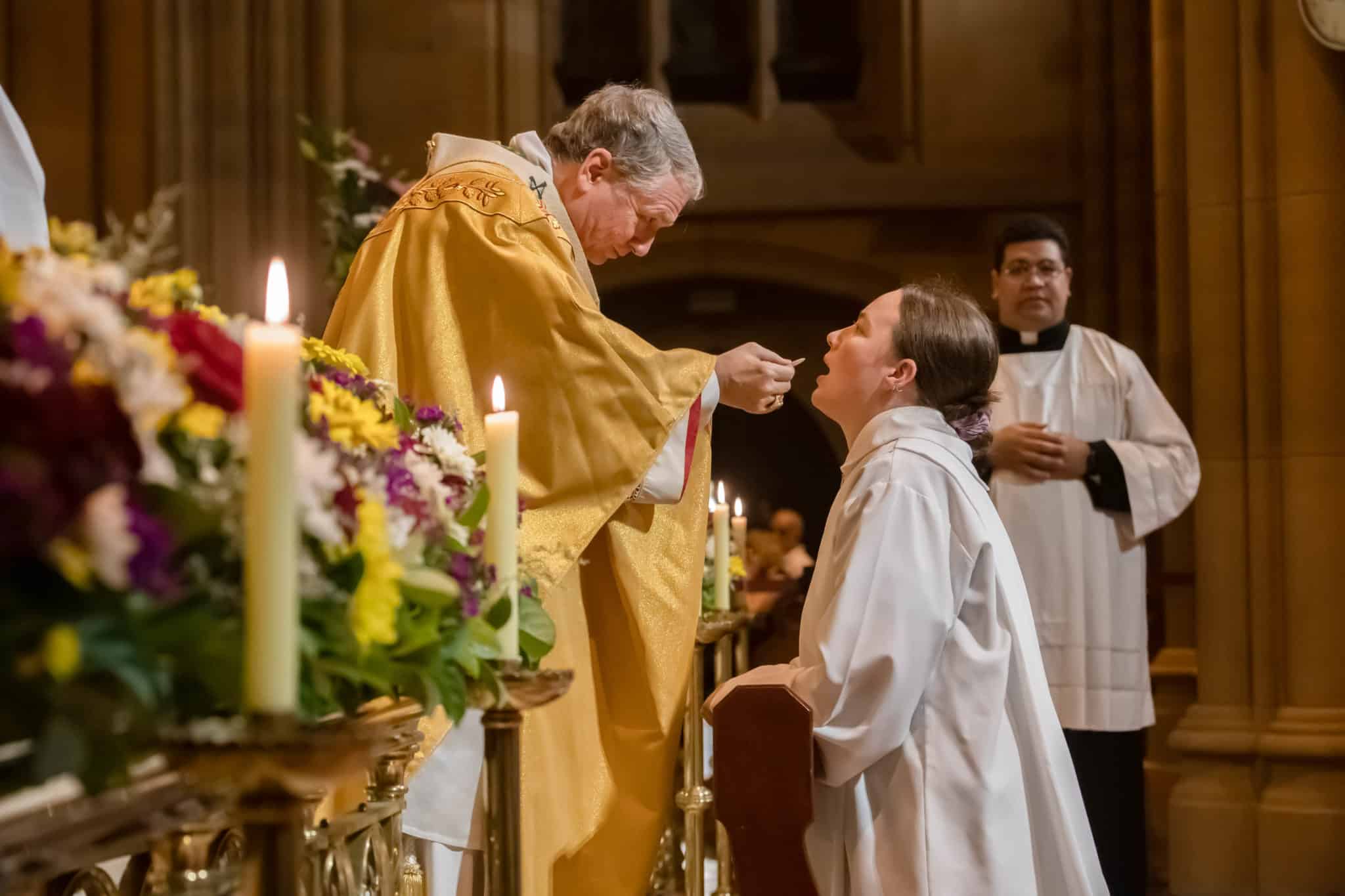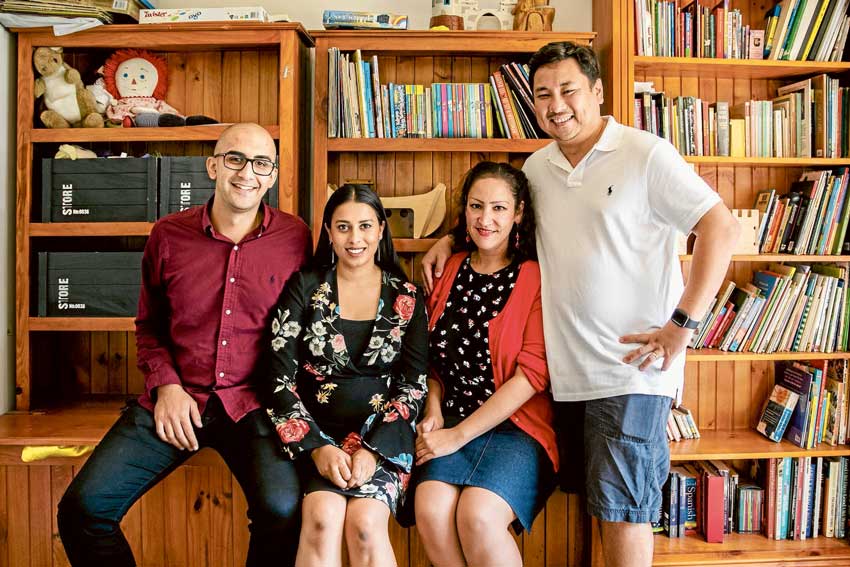
By Francine & Byron Pirola
It’s ‘Sacrament Season’ in Australia: children are busily preparing to make their first Confession, first Holy Communion or Confirmation. Meanwhile, weddings are playing catch up following months of pandemic restrictions.
A life-long encounter
As parents, we had high ambitions for the sacramental preparation of our children. Good intentions, however, struggled against the time drought of busy family, school and work lives.
With all our children now adults, we look forward to supporting the sacramental formation of our grandchildren, who are joyfully multiplying in number. In their parish, the children are prepared through parent-led small groups – a very different process to our parish.
Having learnt from the deficiencies of our parenting in this area, we are now more conscious of making the most of our interactions with our grandbabies. Even as toddlers, as we pray and play with them, we are ‘preparing’ them – predisposing them – to receive their Lord in the sacraments sometime in the future.
“AS PARENTS, WE HAD HIGH AMBITIONS FOR THE SACRAMENTAL PREPARATION OF OUR CHILDREN. gOOD INTENTIONS, HOWEVER, STRUGGLED AGAINST THE TIME DROUGHT OF BUSY FAMILY, SCHOOL AND WORK LIVES.”
Here’s the thing: sacramental preparation is not meant to be confined to a ‘period’ that is pre-determined by the schedule of a program. While there are some excellent courses, they are only ever part of the preparation process, not the preparation in its entirety.
Their encounter with the Lord through our devotion, as well as their parents, is part of the fabric of the sacramental life that forms the backdrop of their faith journey. And when the time comes for formal preparation in the months before each Sacrament is received, it will be merely an intensification of an ongoing formation journey.
Even as adults, we are still being formed to enter more deeply into the sacramental mysteries. Sacrament formation is thus a life-long project that both precedes the ‘peak’ event and extends beyond it.

The Marriage Catechumenate
In the Sacrament of Marriage, a similar emphasis on life-long formation is also needed. To this end, various Marriage Catechumenate projects are occurring in dioceses around the world.
These initiatives aim to extend marriage formation beyond engaged couples as a multi-stage formation across the life cycle, including children, single adults, and throughout a couple’s life together after marriage.
But the Marriage Catechumenate is not just about teaching relationship skills and promoting chastity to singles. Nor is it only about divorce prevention among the married.
“THE MARRIAGE CATECHUMENATE IS NOT JUST ABOUT TEACHING RELATIONSHIP SKILLS AND PROMOTING CHASTITY TO SINGLES. NOR IS IT ONLY ABOUT DIVORCE PREVENTION AMONG THE MARRIED”
The Marriage Catechumenate is principally about evangelisation. For we are not only the beloved children of our heavenly Father, we are also the cherished spouse of his Son, Jesus Christ.
Our capacity to encounter God as trusted family, is patterned on our human experiences.
When our families are loving and secure, we more readily perceive the Lord as he truly is: a tender lover who seeks our good.

Thus, the Marriage Catechumenate is principally a model of faith formation that draws us into intimate relationship with God, through our ordinary human relationships.
This idea is a counterpoint to the trend over recent decades to focus marriage preparation almost exclusively on training engaged couples in secular relationship skills. Consequently, many preparation programs overlooked the spiritual component, or at best, added it as a topic like an ‘appendix’ or after thought.
Moreover, professional instructors were prioritised over the witness of sacramental couples.
“Of course, ‘divorce prevention’ is a noble goal, especially in today’s culture. However, this model of formation is inadequate for a couple called to live the vision the Church…”
This created the impression that there was nothing distinctive about Catholic marriage except that it began with a wedding in a Catholic church.
Of course, ‘divorce prevention’ is a noble goal, especially in today’s culture. However, this model of formation is inadequate for a couple called to live the vision the Church offers its couples through the Sacrament of Matrimony.
Like all the Sacraments, marriage formation is not a ‘once-and-done’ course during engagement. It requires extended participation, informed by relationship science, theology, and spirituality, and accompanied by those living the reality of Catholic marriage with all its messy holiness.
Francine & Byron Pirola are the co-founders of SmartLoving. For more information, visit www.smartloving.org
